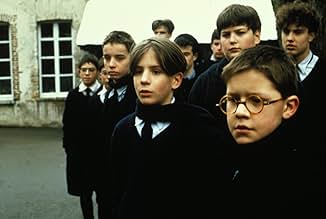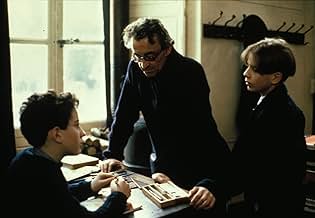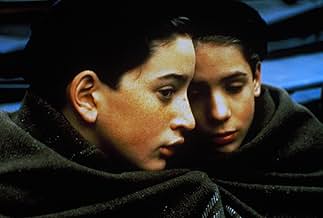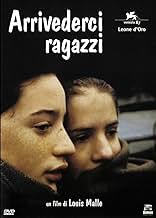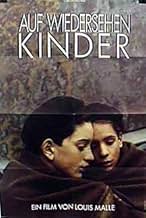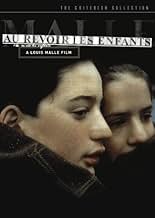The movie was a project close to Louis Malle's heart (he was in tears when the film premiered at a film festival in 1987) and it shows in the multi-layered treatment he gives the central setting, this fascinating boarding school with its broad cast of characters. Because there are so many different strands and affecting moments tangential to the central plot, one is not entirely prepared for the finale even if you are expecting it. French film is characteristically digressive, often to a fault, but here it works to splendid advantage. It also lends itself to repeat viewings.
I don't think you need to have lived in occupied Europe to appreciate this wonderful film; it speaks to all of us who have lived through childhood's quickly-passing parade and know its lifelong regrets. That last image of the stone wall is emblazoned in many consciousnesses, as it is in mine.
There are many interesting choices Malle makes in this film. For example, while the central subject is the Holocaust, nearly all the Germans we actually see in the film are fairly decent if nonetheless menacing types. The real villains here are almost entirely French collaborators, which was done I think to call attention to collaboration during a period when the French were dealing with the Klaus Barbie trial. [Barbie was a Gestapo officer who was aided in his work rooting out Resistance leaders by many French collaborators.] But casting French people as the heavies also suggests the central evil of prejudice and oppression is not something exclusive to one nationality, and it broadens the scope of the movie.
The tender treatment Malle affords the Catholic hierarchy in the movie is unusual, too, when you see other more anti-clerical Malle efforts like "Murmur of the Heart." There is an unexpected sense of spirituality throughout this film, somewhat muted but there all the same.
This may well stand as the cinematic masterpiece of a man who, at his best (see also "Atlantic City" and "My Dinner With Andre") was to motion pictures what his countrymen Zola and Hugo were to novels: An artist who filled his canvas with the verve and breadth of human life.

![Watch Bande-annonce [VOST]](https://m.media-amazon.com/images/M/MV5BZDlkMTI5OTgtNmU4My00MzRjLWFkNzMtYmMyMDlhNjQ2OTFmXkEyXkFqcGdeQXRyYW5zY29kZS13b3JrZmxvdw@@._V1_QL75_UX500_CR0)
